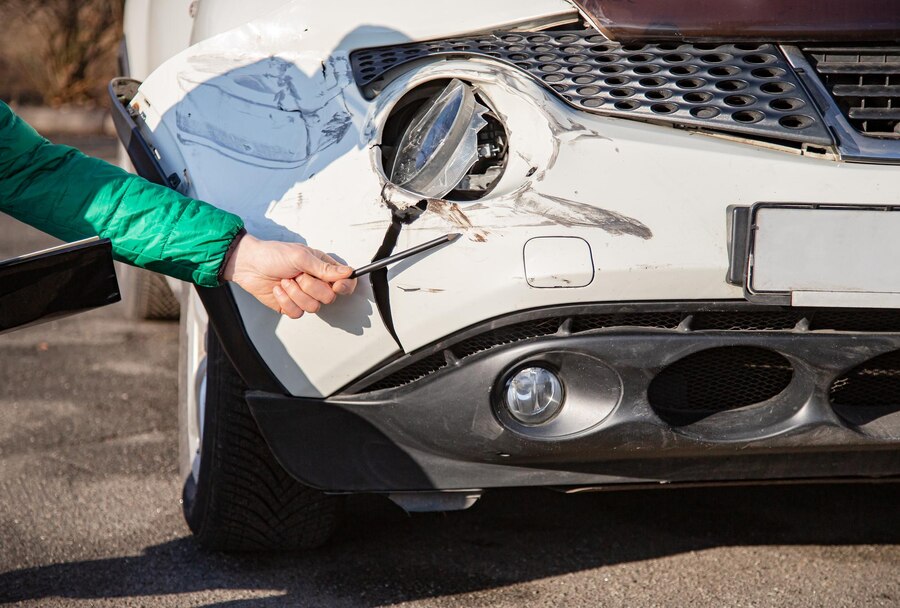Several factors contribute to the valuation of a junk car, and being aware of these can significantly influence the offer you receive from buyers. This article aims to provide a comprehensive guide on the various elements that impact your junk car’s value. By the end of this article, you’ll have a clearer understanding of what to consider and how to approach the evaluation process.
Condition of the Car
When evaluating your junk car, the condition of the vehicle is one of the most critical factors that will impact its value. Understanding the various aspects of your car’s condition can provide a clearer picture of what to expect when seeking a quote from cash-for-cars services. Here are the key elements to consider:
A. Mechanical Condition
The mechanical condition of your junk car plays a significant role in determining its value. This includes the state of the engine, transmission, and other vital components. A car with a functioning engine and transmission, even if it’s an older model, can fetch a higher price compared to one with major mechanical failures. Additionally, if your car has parts that are still in good working order, such as the alternator, starter, or catalytic converter, these can add value. On the other hand, a car that requires extensive repairs or has irreparable mechanical issues will likely be worth less.
B. Exterior and Interior Condition
The exterior and interior condition of your junk car also contribute to its overall value. While a junk car is often not expected to be in pristine condition, significant damage like extensive rust, dents, or a failing paint job can reduce its worth. Similarly, the interior condition matters; a well-maintained interior with undamaged seats, a functional dashboard, and intact flooring can be a plus. Even if the car is not in drivable condition, parts of the exterior and interior that are in good shape can be salvaged and repurposed, which can increase the car’s value.
C. Mileage
Mileage is another important factor in assessing the value of your junk car. Generally, cars with lower mileage are more valuable as they have undergone less wear and tear. While higher mileage typically indicates more extensive use and thus potential mechanical issues, it’s not the sole determinant. For instance, a high-mileage car that has been well-maintained can sometimes be more valuable than a low-mileage car in poor condition. However, for most junk cars, lower mileage will generally be seen as a positive attribute.
Market Demand
When evaluating the value of your junk car, understanding market demand is crucial. Market demand can significantly influence how much money you can get for your vehicle. This section delves into three primary factors that determine market demand: the popularity of the model, the availability of parts, and scrap metal prices.
A. Popularity of the Model
The popularity of your car’s make and model plays a significant role in its valuation. Vehicles that were popular when they were new are often more desirable in the junk car market. This is because a higher number of these cars on the road increases the demand for spare parts. For example, a junk Honda Civic might fetch more money than a less common vehicle because of its widespread use and the consistent need for replacement parts. If your car is a well-known model with a reputation for reliability, you might be in luck when it comes to its resale value as a junk car.
B. Availability of Parts
The availability of parts is another critical factor in determining the value of your junk car. Cars that have parts that are in high demand will generally be worth more. If your vehicle’s make and model have parts that are frequently sought after by mechanics or car enthusiasts, the junk car’s value can increase. Conversely, if parts are readily available and not in shortage, the value might be lower. For instance, a car with a unique engine type or specialized components may attract higher offers from junkyards looking to meet specific demands.
C. Scrap Metal Prices
Scrap metal prices fluctuate based on market conditions, and this can directly impact how much you can get for your junk car. The value of the metal components in your car—such as steel, aluminum, and copper—can vary. When scrap metal prices are high, you can expect a better return on your junk car. It’s worth keeping an eye on current scrap metal prices and trends, as these can change rapidly due to various economic factors, including global supply and demand, trade policies, and manufacturing needs.

Location
The location of your junk car plays a significant role in determining its value. Several aspects of your geographical location can either enhance or diminish the price you can receive. Let’s delve into how regional demand, proximity to junkyards, and transportation costs influence the valuation process.
A. Regional Demand
The demand for junk cars varies widely from one region to another. In densely populated urban areas, there is often a higher demand for junk cars due to increased vehicle turnover and a higher incidence of accidents. This increased demand can drive up the price you receive for your junk car. Conversely, in rural areas with fewer potential buyers and less frequent vehicle turnover, the demand for junk cars may be lower, potentially decreasing the value of your vehicle.
Demographics and local economic conditions also play a part in regional demand. Areas with a higher concentration of low-income families or individuals might see a higher demand for used car parts, which can positively influence the value of your junk car. On the other hand, affluent neighborhoods may have less demand for such vehicles, leading to lower offers.
B. Proximity to Junkyards
The closer you are to junkyards or scrap yards, the better it is for your wallet. Transportation costs are a crucial factor in the valuation of junk cars. If a towing service needs to cover a considerable distance to retrieve your vehicle, those costs will likely be deducted from the offer you receive. On the other hand, if you live close to several junkyards, the competition among them might result in better offers, as each yard vies to acquire your vehicle.
Moreover, urban areas tend to have a higher concentration of junkyards, giving you more options and potentially better prices. In contrast, rural areas might have fewer junkyards, which could limit your options and lower the overall value of your junk car.
C. Transportation Costs
Transportation costs can significantly impact the final amount you receive for your junk car. The logistics of moving a non-operational vehicle require specialized equipment and labor, both of which can be expensive. If the junkyard or buyer has to invest considerably in towing your car, those expenses will likely be reflected in the offer they make.
It is essential to get a clear understanding of who will bear the transportation costs. Some junkyards offer free towing services within a certain radius, which can be a significant benefit. Make sure to inquire about these details when getting quotes, as they can substantially influence the final amount you receive.
Evaluating Your Junk Car at Cash For Cars Quick
Evaluating your junk car involves considering multiple factors that collectively determine its value. We began by discussing the importance of assessing your vehicle’s overall condition, focusing on its mechanical state, exterior and interior wear, and accumulated mileage. A car in better mechanical condition, with a well-maintained exterior and interior, and lower mileage typically commands a higher price.
Next, we examined market demand, which includes the popularity of your car model, availability of its parts, and current scrap metal prices. Cars with high-demand models or rare parts often fetch a better price, while fluctuating scrap metal prices can significantly impact the value.
Location also plays a crucial role. Regional demand, proximity to junkyards, and transportation costs can all affect the final offer you receive. Areas with higher demand for certain models or parts might offer better prices, and being closer to junkyards can reduce transportation costs, resulting in more favorable offers.
Taking the time to evaluate your junk car thoroughly can lead to better financial outcomes and a more satisfying selling experience. Armed with the knowledge of what affects your car’s value, you’re now ready to take the next steps towards selling your junk car efficiently and profitably. Remember to gather detailed information about your vehicle and reach out to multiple buyers to compare offers effectively
FAQs
- Q: What factors affect the value of my junk car? A: Several factors affect the value of your junk car, including its make, model, year, condition, mileage, demand for its parts, market fluctuations, and current scrap metal prices.
- Q: Does the make and model of my junk car impact its value? A: Yes, the make and model of your junk car can impact its value. Some makes and models have higher demand for parts, which can increase the value, while others may have limited demand, resulting in a lower value.
- Q: How does the condition of my junk car affect its value? A: The condition of your junk car plays a significant role in determining its value. Cars in better condition, with fewer mechanical issues or significant damage, often have higher value as their parts can be salvaged or resold.
- Q: Does the mileage of my junk car impact its value? A: Yes, the mileage of your junk car can impact its value. Lower mileage vehicles generally have more valuable parts and components, making them more desirable in the salvage market.
- Q: How does the demand for parts affect the value of my junk car? A: The demand for parts from your junk car can significantly impact its value. If your car has parts that are in high demand due to scarcity or popularity, its value can increase.
- Q: Can market fluctuations affect the value of my junk car? A: Yes, market fluctuations can affect the value of your junk car. Prices for scrap metal and used car parts can vary due to factors like supply and demand, economic conditions, and industry trends.
- Q: How can I determine the current scrap metal prices for my junk car? A: To determine the current scrap metal prices for your junk car, you can research local scrap yards or consult online resources that provide up-to-date pricing information. Cash for Cars Quick can assist you in getting accurate valuation for your junk car.
- Q: Are there any other factors that can affect the value of my junk car? A: Yes, other factors that can affect the value of your junk car include the presence of valuable aftermarket parts, the overall popularity of the vehicle, any modifications made to the car, and the local market demand for junk cars.
- Q: Can I sell my junk car for more if I remove valuable parts before selling? A: Removing valuable parts from your junk car before selling can potentially increase its value. However, it’s important to consider the cost and effort involved in removing the parts, as well as the potential impact on the car’s overall value.
- Q: How can Cash for Cars Quick help me evaluate the value of my junk car? A: Cash for Cars Quick can help you evaluate the value of your junk car by providing a professional assessment based on factors like make, model, condition, mileage, and current market conditions. Their experienced team can offer you a fair and competitive price for your junk car.

